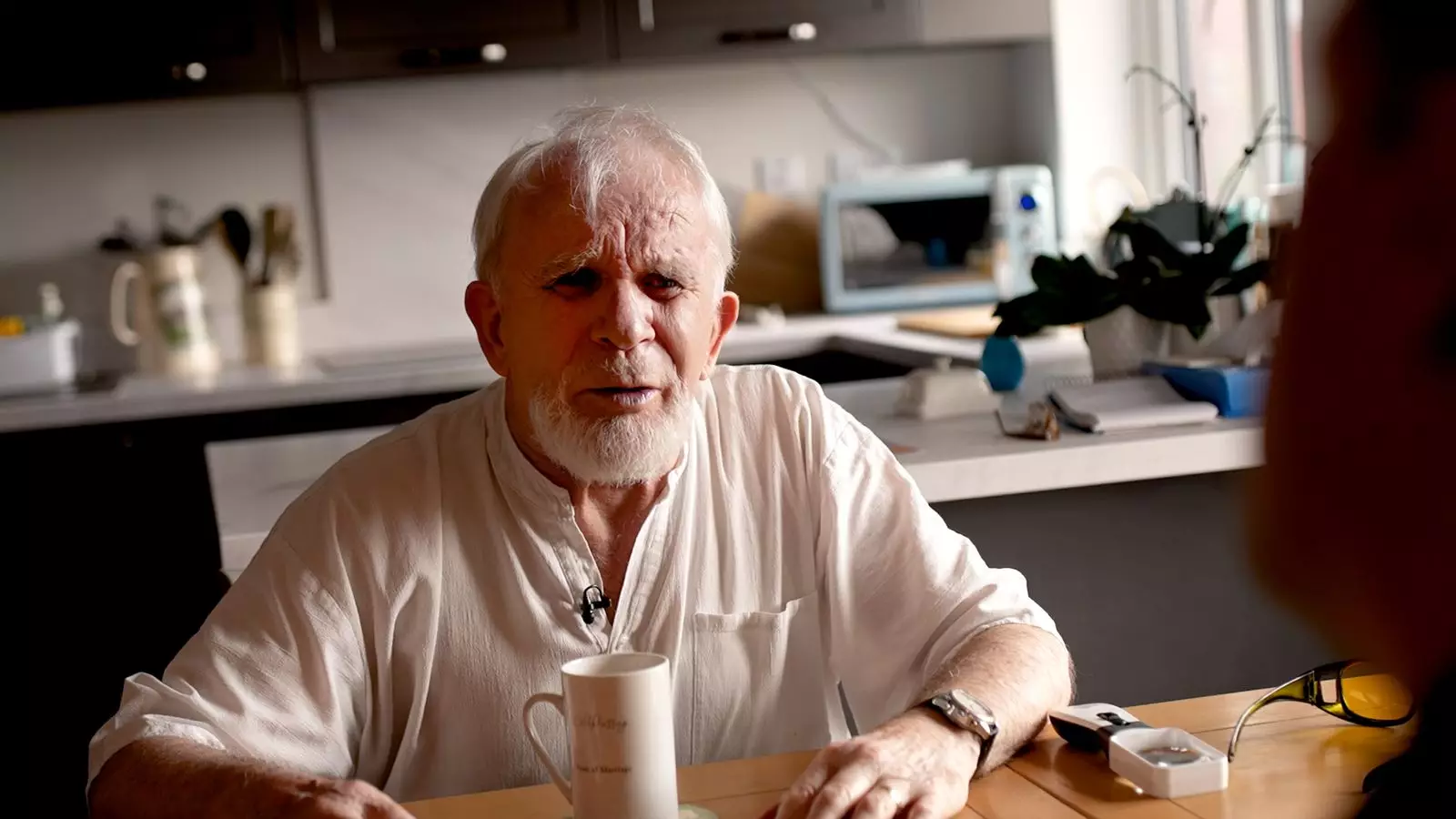As the chill of winter approaches, concerns among the elderly are escalating, creating a tumultuous environment filled with anxiety and frustration. At the heart of these worries is the plight of pensioners, particularly those like Kevin McGrath, an 81-year-old retired social worker, whose story sheds light on the broader issue facing millions of older individuals in the United Kingdom.
During a recent visit to McGrath’s modest two-bedroom apartment in Corby, Northamptonshire, it became evident that the ramifications of government fiscal decisions have far-reaching effects on vulnerable communities. Recently recovering from significant eye surgery, its clear his physical struggles are compounded by the emotional toll inflicted by government cuts, particularly the proposed withdrawal of the winter fuel allowance—a vital source of support for many seniors. McGrath’s perspective is stark; he labels this decision by the Labour government as “evil,” highlighting how those who already possess little are being targeted in fiscal measures aimed at addressing a daunting £22 billion public finance shortfall.
Many pensioners in the UK rely heavily on the winter fuel payment to navigate the escalating costs of living, especially with energy bills surging. The intention behind limiting this allowance to those who receive Pension Credit or similar benefits might be framed as a means of financial prudence. However, the human cost of such policy shifts, particularly for those who have spent their lives contributing to society, is difficult to rationalize. “Who decides that we haven’t got enough money to live on?” he queries, echoing a sentiment shared by many of his peers.
The psychological toll of such changes is significant. The requirement to apply for benefits, along with the implication that one must qualify to receive help, can be a source of humiliation for many elderly individuals who have dedicated their lives to work and community. McGrath cites conversations with friends who express feelings of shame for needing to apply for assistance—people who, throughout their lives, believed they would never find themselves in such dire situations.
Supporting this narrative, the charity Independent Age has reported a dramatic spike in inquiries regarding Pension Credit eligibility amidst these policy changes. In August alone, inquires about pension credit were three-and-a-half times higher than the first six months of the year, indicating that many individuals are grappling with the reality of potential loss. As McGrath notes, for many older individuals, financial assistance is not merely a government benefit—it’s a crucial lifeline that allows them to maintain dignity and cope with the elements during harsh winters.
Critics of the government’s strategy argue that it appears unjust to impose fiscal penalties on pensioners who are often living on fixed incomes while allowing more affluent demographics to potentially bypass scrutiny. Callousness seems to permeate the rationale behind these cuts; McGrath articulates this frustration as he recalls government officials leading with rhetoric that paradoxically supports the triple lock on state pensions—for some, raising that amount by £460 annually in April 2025—while simultaneously withdrawing essential benefits for others.
In the face of such contradictions, Independent Age’s chief executive Joanna Elson demands an immediate reassessment of the government’s approach. She argues for a delay in implementing the means test for winter fuel payments, suggesting that sufficient support systems need to be established to ensure the older population can comfortably apply for Pension Credit without the paralyzing fear of denial.
As winter approaches, Kevin McGrath remains cautiously optimistic despite his disappointment with the government’s actions. “It’s sad that if you’re elderly and you’re not economically active, then you don’t matter,” he remarks, encapsulating the growing frustration that seems to echo through the aging populace. This sentiment resonates deeply during times when the most vulnerable are pushed to the brink in pursuit of financial sustainability.
The debate over winter fuel payments and pension support transcends mere economic policy; it speaks to a societal choice about who we prioritize and support in times of need. As UK policy continues to evolve, it is crucial for the voices of individuals like McGrath to resonate, reminding policymakers that the impact of their decisions can lead not only to financial hardship but also to real emotional suffering. The forthcoming winter will compel society to confront these tough realities head-on, as we collectively evaluate what it means to care for our elderly citizens in an increasingly uncertain world.


Leave a Reply